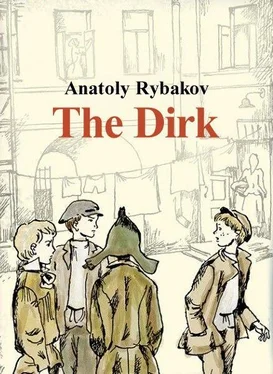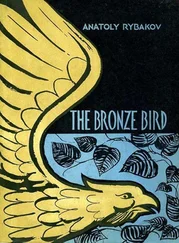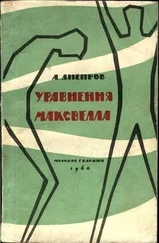Anatoly Rybakov - The Dirk
Здесь есть возможность читать онлайн «Anatoly Rybakov - The Dirk» весь текст электронной книги совершенно бесплатно (целиком полную версию без сокращений). В некоторых случаях можно слушать аудио, скачать через торрент в формате fb2 и присутствует краткое содержание. Город: Moscow, Год выпуска: 1954, Издательство: Foreign Languages Publishing House, Жанр: Детские приключения, Детектив, Исторические приключения, на английском языке. Описание произведения, (предисловие) а так же отзывы посетителей доступны на портале библиотеки ЛибКат.
- Название:The Dirk
- Автор:
- Издательство:Foreign Languages Publishing House
- Жанр:
- Год:1954
- Город:Moscow
- ISBN:нет данных
- Рейтинг книги:4 / 5. Голосов: 1
-
Избранное:Добавить в избранное
- Отзывы:
-
Ваша оценка:
- 80
- 1
- 2
- 3
- 4
- 5
The Dirk: краткое содержание, описание и аннотация
Предлагаем к чтению аннотацию, описание, краткое содержание или предисловие (зависит от того, что написал сам автор книги «The Dirk»). Если вы не нашли необходимую информацию о книге — напишите в комментариях, мы постараемся отыскать её.
The Dirk — читать онлайн бесплатно полную книгу (весь текст) целиком
Ниже представлен текст книги, разбитый по страницам. Система сохранения места последней прочитанной страницы, позволяет с удобством читать онлайн бесплатно книгу «The Dirk», без необходимости каждый раз заново искать на чём Вы остановились. Поставьте закладку, и сможете в любой момент перейти на страницу, на которой закончили чтение.
Интервал:
Закладка:
The evening brought a fresh coolness into the garden; some girls were singing in the distance and snatches of their songs reached the porch; the dogs barked incessantly in the vegetable gardens.
Polevoy pulled at a pipe of home-grown tobacco and spoke if voyages to distant lands, of mutinies on the high seas, of cruisers and submarines, of Ivan Poddubny and other famous wrestlers in black red, and green masks, of strong men lifting three horses together with the carts, each cart containing ten persons.
Misha gaped in wonder. Orange lights blinked timidly from the dark rows of little wooden houses huddling close on the silent street Polevoy also spoke of the Empress Maria on which he had served during the world war.
The Empress Maria was a huge ship, the most powerful battleship in the Black Sea Fleet. She was launched in June 1915 and blew up near Sevastopol in October 1916, half a mile off the coast.
"A black business that was," Polevoy said. "She was not struck by a mine or a torpedo, but blew up on her own. The magazine of the first turret, that had about forty-eight tons of powder in it, was the first to explode. That set everything off. In an hour the ship was already under water; the survivors, less than half the crew, were all either badly burned or injured."
"Who blew her up, then?" Misha asked.
Polevoy shrugged his broad shoulders.
"Many people tried to get to the bottom of it," he said, "but all to no purpose; and then came the Revolution. You have to ask the tsarist admirals for an explanation."
"Sergei Ivanovich," Misha asked suddenly, "who's greater, a tsar or a king?"
"Hm!..." Polevoi spat out the brown tobacco juice. "One's as good as the other."
"And are there still tsars in other countries?"
"Yes, here and there."
"Should I ask him about the dirk?" Misha thought. "No, better not. He might think I had followed him on purpose."
A little later everyone went back into the house. Grandmother made her usual evening rounds, closing the shutters. The iron bolts clanged warningly. The kerosene lamp hanging in the dining-room was put out, and the moths and midges that had swarmed around it melted into the darkness.
Misha lay awake in bed a long time.
The moon sent its pale threads through the chinks in the shutters, and a cricket began chirping behind the stove in the kitchen.
They had no crickets in Moscow. What would a cricket be doing in a big, noisy apartment, where people walked in and out at night, banging the doors and clicking the electric switches! That was why he heard a cricket only in Grandfather's quiet house when he lay alone with his dreams in the dark room.
What a splendid thing it would be if Polevoy gave him the dirk. He would not be unarmed as now. And the times were alarming, with the Civil War going on. Bandits were running loose in the Ukrainian villages, and even the towns were not safe. Detachments of the local self-defence corps patrolled the streets at night, armed with old rifles with rusty bolts and no bullets.
Misha dreamed of the future when he would be tall and strong, when he would wear bell-bottomed trousers, or, better still, puttees; smart khaki army puttees.
He would carry a rifle, hand-grenades, machine-gun belts, and wear a revolver on a creaky leather waist-belt.
He would ride a raven-black horse, slender-legged, sharp-eyed, with a powerful croup, short neck, and a sleek coat.
And he would catch Nikitsky and break up his gang. Then he and Polevoy would go to the front and fight shoulder-to-shoulder; he would save Polevoy's life heroically and die, leaving his friend to grieve for him all his life; and he would never again meet a boy like Misha...
And Misha went to sleep.
Chapter 4
THE PUNISHMENT
Misha did not doubt that Uncle Senya had invented this punishment. It could not have been anyone else. And the thing that hurt most was that Grandfather was siding with him.
"Got all the running about you wanted yesterday?" he said,, looking up at Misha while they were having their breakfast. "Well, I'm glad of that. Should last you for a week, at least. I'm afraid you'll have to stay indoors to-day."
Waste the whole day at home! To-day. On Sunday! The fellows were going to the woods and might even cross to the island in a boat, while he... Misha twisted his mouth and stared at his plate.
"What are you sulking about?" Grandmother said. "You're getting far too mischievous."
"That's enough," interjected Grandfather, rising from the table. "He's got his punishment. Now it's all over."
Misha slouched despondently from room to room. What a rotten place this is! he thought.
The walls in the dining-room were covered with oil paintings. The paint was cracked and had lost its lustre. One painting showed a huge white sea-gull skimming over blue waves; another was of a reindeer with long, branching horns, standing between two straight pines; a third painting had some herons in it; yet another depicted bearded hunters in top boots and feathers in their caps, with guns and bandoliers slung over their shoulders; in the foreground were dogs with noses close to the ground. Misha thought the dogs had clever eyes.
Portraits of Grandfather and Grandmother, taken when they were young, hung on the wall behind the sofa. Grandfather had a thick moustache, and his clean-shaven chin was propped up by a starched collar with bent corners. Grandmother wore a high-necked black dress and a medallion on a long chain around her neck. Her hair was piled high on her head so that it almost touched the frame.
Misha went out into the yard where two wood-cutters were sawing fire-wood. The saw rang merrily while a carpet of yellow sawdust was rapidly covering the ground round the saw-horse.
Misha sat on the log near the kennel and studied the wood-cutters. The older man looked about forty; he was of medium height, stocky, had a swarthy face and his curly hair stuck to his perspiring forehead. The second man was a young, fair-haired fellow with a freckled face and bleached brows, and somehow he looked slack and clumsy.
Misha stealthily slipped his hand under the kennel and felt for the package. Should he take it out? He looked at the wood-cutters out of the corner of his eye. They had stopped sawing and were resting on the fire-wood. The older man rolled a scrap of paper into a small bent cone, filled it with tobacco from his palm, and lit it. While he smoked, the second man dozed.
"Whew! I'm sleepy!" he said, opening his eyes and yawning.
"When you're sleepy even a harrow's a good bed," the older man replied.
The men fell silent. All was quiet in the yard. Only the hens pecked a rapid tattoo on a wooden trough. They were drinking water, comically throwing back their small red-combed heads after every gulp.
When the wood-cutters rose and began splitting the fire-wood again, Misha carefully pulled out the package and opened it. He turned the blade in his hand and noticed a hardly perceptible engraving of a wolf on one side. On the second side was a scorpion, on the third a lily.
Wolf, scorpion, and lily. What could they signify?
Misha's thoughts were rudely disturbed by a log falling near him. He pressed the dirk to his breast in alarm, covering it with his hand.
"Move off, kiddy, or you'll get hurt," the swarthy man said.
"I'm not a kid," Misha retorted.
"Oho! You've got a sharp tongue!" the man laughed. "Who are you? The commissar's son?"
"What commissar?"
"Polevoy," the man said and for some reason threw a look at the house.
"No. He only lives with us."
"Is he at home?" the man asked, dropping the axe and looking intently at Misha.
"No. He usually comes in at dinner-time. Do you want him?"
"No. Thought I'd ask, that's all."
When they had split all the wood, Grandmother brought the woodcutters a plate of pork, bread, and some vodka. The man with the fair hair drank his vodka silently, but the older man made a ceremony of it.
Читать дальшеИнтервал:
Закладка:
Похожие книги на «The Dirk»
Представляем Вашему вниманию похожие книги на «The Dirk» списком для выбора. Мы отобрали схожую по названию и смыслу литературу в надежде предоставить читателям больше вариантов отыскать новые, интересные, ещё непрочитанные произведения.
Обсуждение, отзывы о книге «The Dirk» и просто собственные мнения читателей. Оставьте ваши комментарии, напишите, что Вы думаете о произведении, его смысле или главных героях. Укажите что конкретно понравилось, а что нет, и почему Вы так считаете.












